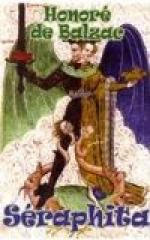who protects my door.’ In fact, no matter
in what country he made his abode he never closed his
doors, and nothing was ever stolen from him.
At Gottenburg—a town situated some sixty
miles from Stockholm—he announced, eight
days before the news arrived by courier, the conflagration
which ravaged Stockholm, and the exact time at which
it took place. The Queen of Sweden wrote to her
brother, the King, at Berlin, that one of her ladies-in-waiting,
who was ordered by the courts to pay a sum of money
which she was certain her husband had paid before
his death, went to Swedenborg and begged him to ask
her husband where she could find proof of the payment.
The following day Swedenborg, having done as the lady
requested, pointed out the place where the receipt
would be found. He also begged the deceased to
appear to his wife, and the latter saw her husband
in a dream, wrapped in a dressing-gown which he wore
just before his death; and he showed her the paper
in the place indicated by Swedenborg, where it had
been securely put away. At another time, embarking
from London in a vessel commanded by Captain Dixon,
he overheard a lady asking if there were plenty of
provisions on board. ‘We do not want a
great quantity,’ he said; ’in eight days
and two hours we shall reach Stockholm,’—which
actually happened. This peculiar state of vision
as to the things of the earth—into which
Swedenborg could put himself at will, and which astonished
those about him—was, nevertheless, but
a feeble representative of his faculty of looking
into heaven.
“Not the least remarkable of his published visions
is that in which he relates his journeys through the
Astral Regions; his descriptions cannot fail to astonish
the reader, partly through the crudity of their details.
A man whose scientific eminence is incontestable, and
who united in his own person powers of conception,
will, and imagination, would surely have invented
better if he had invented at all. The fantastic
literature of the East offers nothing that can give
an idea of this astounding work, full of the essence
of poetry, if it is permissible to compare a work
of faith with one of oriental fancy. The transportation
of Swedenborg by the Angel who served as guide to
this first journey is told with a sublimity which exceeds,
by the distance which God has placed betwixt the earth
and the sun, the great epics of Klopstock, Milton,
Tasso, and Dante. This description, which serves
in fact as an introduction to his work on the Astral
Regions, has never been published; it is among the
oral traditions left by Swedenborg to the three disciples
who were nearest to his heart. Monsieur Silverichm
has written them down. Monsieur Seraphitus endeavored
more than once to talk to me about them; but the recollection
of his cousin’s words was so burning a memory
that he always stopped short at the first sentence
and became lost in a revery from which I could not
rouse him.”




